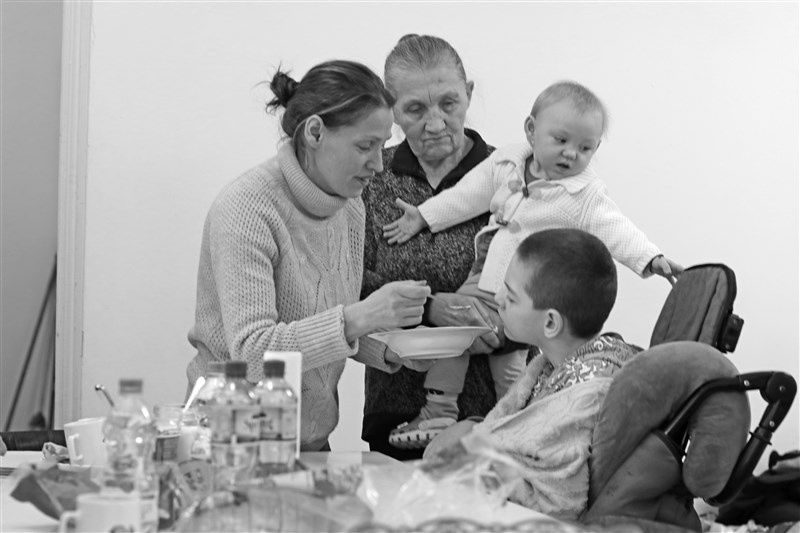Vulnerable people in the war
In the past weeks, an estimated 12.65 million people have been affected in the areas hardest hit by the war within Ukraine. About 3 million refugees have fled the country and another 1.85 million people are internally displaced. Many more remain trapped in areas of escalating conflict where essential services are disrupted, and basic needs such as food, water and medicines can scarcely be met. In the face of this human catastrophe, Dorcas seeks to identify the most vulnerable groups and provide them with shelter, food, medical aid and other basic care. These include persons with disabilities, older people and people at risk of human trafficking.
Persons with disabilities
About 3 million persons with disabilities live in Ukraine. They face multiple barriers in accessing safe evacuation, shelter and humanitarian assistance. For example, shelters like metro stations and bunkers are often inaccessible for persons who use wheelchairs. And blind and deaf persons experience difficulties accessing information on emergency evacuation and shelter locations. Therefore, many people with disabilities are forced to stay at home when shelling occurs. Furthermore, thousands of children and adults with disabilities are trapped in institutions where they face the risk of being abandoned or suffering serious neglect.

Older people
Older people are also disproportionately harmed by the war, especially older women and people with disabilities or chronic diseases. They face difficulties in escaping or avoiding fighting, which means they can become separated from their family. Access to the healthcare, medicines and assistive devices (such as walking frames and toilet chairs) they need can also be severely curtailed. And where humanitarian support and targeted services are available, older people often fail to access these because they are unable to wait in the long queues for hours.
Risk of trafficking
Finally, refugees run the risk of human trafficking. Displaced persons may have limited access to financial resources or opportunities for income generation. That gives traffickers a fertile environment to promise safe migration routes, employment and education or skills training. Refugees are then deceived into entering exploitative situations to pay off the smuggler fees. Children who are displaced or separated from their families without support networks are particularly vulnerable to becoming targets for traffickers.
04 April 2022
Are you inspired?
Read the next story or contact us to get to know more about making an impact together.